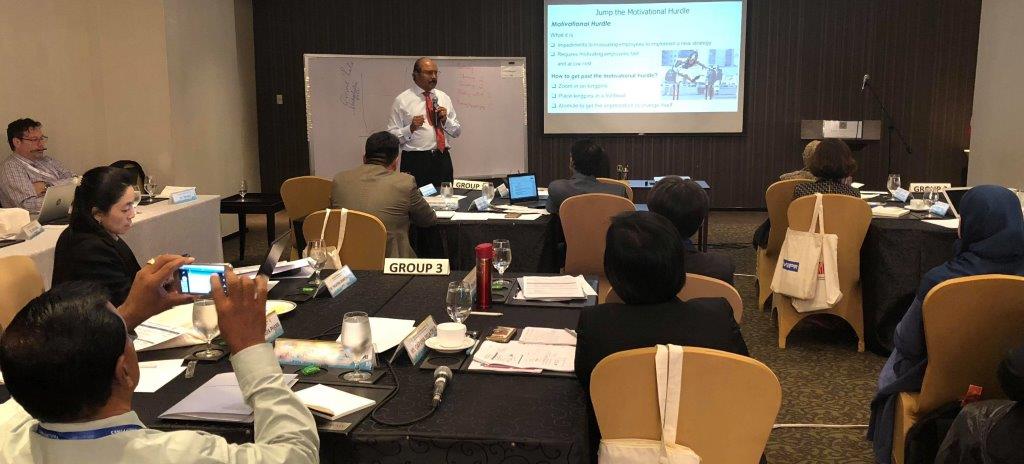
Select Page
While technology and processes play key roles in driving national productivity growth, effective public-sector leadership is also very important. Recognizing that public-sector leadership is a critical component of good governance and organizational performance, the Asian Productivity Organization (APO) conducted a workshop on Public-sector Leadership in Manila, 6–10 August 2018.
The workshop provided an opportunity for senior government officials including those from state-owned enterprises, policymakers from central and local government organizations, and experts from NPOs to define the critical role of leadership within the framework of good public governance of the future. It assessed drivers of change impacting public-sector leadership and productivity in APO member economies to assist them in adopting the APO Public-sector Leadership Framework.

According to experts, the confluence of demographic and socioeconomic factors along with technological advances will influence how governments evolve to meet citizens’ changing needs. Understanding these factors or drivers of change and their potential impact, they point out, is the first step in preparing for the future, especially for public-sector leaders.
The workshop was held in collaboration with the Development Academy of the Philippines (DAP) and attended by 18 participants from 14 APO member countries. It was conducted by APO international experts Dr. Tim A. Mau, Associate Professor of the Department of Political Science, University of Guelph, Canada, and Dr. John Antony Xavier, Professor of the Graduate School of Business, National University of Malaysia. The lecture, group discussion, and case study approach was used, including sharing of experience among participants, site visits, individual action plan preparation/presentation, and assignments.
Delivering the Keynote Address, APO Director for the Philippines Dr. Adoracion M. Navarro commented that the APO understood the reality that each country has unique values and expectations from its leaders. “Approaches to molding future leaders, along with changes in the society and governments, also vary. Indeed, there is no single best model,” she said, adding that as countries aligned with innovative public-sector leadership models and utilized more technologies for sustainable productivity, it would be “exciting to see how the APO Public-sector Leadership Framework will define future leaders and how the leadership capacity in the sector will be enhanced.”
Welcoming the participants, DAP President and CEO Engelbert C. Caronan, Jr. stated that public-sector leaders had a duty to lead in nation building. “It is our duty to lead in navigating these maps of possibilities and constraints so that we can pave new ways that could further public service and ensure good governance. It is our duty to lead with innovative thinking for social good,” he stressed. Caronan highlighted that while it was crucial for leaders to understand the changes that the future will bring, it was also important for them to understand where these changes were coming from.
The APO recognizes that many member countries have taken steps to enhance their public-sector leadership and intended to supplement those initiatives. To build on existing leadership enhancement efforts, the APO convened a workshop in Manila in November 2016 to develop its own framework dedicated to the public-sector as a guide for member countries to anticipate the future of government.
One of the key objectives of the APO framework is to bring greater coherence and comprehensiveness to the different approaches by emphasizing the need for innovation leadership to increase public-sector productivity. The framework identifies the desirable competencies and capabilities to steer innovative, productive public-sector organizations and navigate existing and future challenges posed by their environments. It also provides a blueprint for the APO and NPOs to develop the leadership capacity of government officials in the Asia-Pacific region.